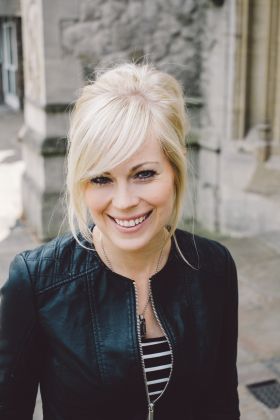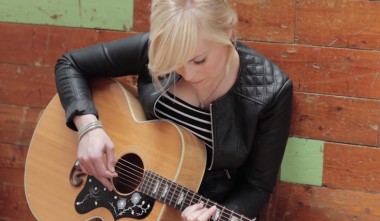Vicky Beeching on coming out: 'God has walked me through this, hand in hand'

Vicky Beeching, the Christian commentator and former worship leader who has come out as gay, has says her absolute faith in God has not wavered.
"I think God has very much walked me through this, hand in hand. I do not feel I left God in back there, in the evangelical church. I feel like he's become closer and closer. I feel I was in the desert, making this decision, and he's been in the desert with me, that this is something he's led me towards, something I am supposed to do."
Beeching described an intense emotional struggle and even illness which needed chemotherapy. The illness developed after years of hiding her sexuality within the charismatic evangelical movement, where her musical skills and gifts of leadership meant she quickly rose to prominence.
She has been attracted to women since she was a young teenager, but only came out to her parents at Easter this year, she told The Independent. Now 35, she says she has never had a relationship and did not even meet an out gay person until she was 30.
She said the impetus to come out was turning 35, and the vote to consecrate women bishops in the Church of England. The vote meant the women issue was "done and dusted" and the Church will now have to confront its problems with sexuality.
She emphasised: "I am not angry with the Church, even though it has been very difficult. The Church is still my family. Family do not always agree or see eye to eye. But family stick together, and I am committed to being part of the Church, working for change."
She said the reaction to her decision to out herself as gay has provoked humour as well as other more predictable responses. "There are a lot of Christian men saying they are weeping, because they are going to have to take back the ring they got me. It is nice that people are making light of it. It has been pretty awkward, I am such a private person, I do feel a bit like I have been paraded naked around the front of the world."
She still considers herself an evangelical, although she no longer attends charismatic evangelical services and now prefers the more traditional services of London's main cathedrals, Westminster Abbey, St Paul's and Southwark. She likes being in churches where no-one knows who she is and where she is not likely to be asked to join the worship team any time soon. "No-one singing any of my music, which is nice." She also needed the kind of space where she could prepare mentally and spiritually for coming out, the more contemplative meditative space found in cathedral worship, in particular services such as evensong.
"The root of evangelicalism is a high regard for the Bible and a passion for social justice. I really resonate with that. But I have been really discouraged in recent years, the way people have drawn a line around evangelicalism. Some do exclude anyone who has spoken up for LGBT people. Jesus was always rather keen to include rather than exclude."

She compares the Bible's teaching on homosexuality to that of St Paul on women's role in preaching and teaching. "It took a long time for evangelical Christians to come to terms with that. We have not changed what the Bible says. We have just used our brains and hopefully God's influence to reinterpret it." So the well-known Biblical texts from Leviticus, for example, should not be used to condemn "permanent, faithful, stable same-sex relationships."
She hopes that being open about her sexuality will give her the freedom to explore a relationship in the future. "There is someone that I like," she said. "I think coming out will give me the freedom to explore that. Now I feel I have given myself permission to do that."
For those who have followed her leadership for years, she says this: "I feel like people have trusted my judgement all these years in terms of following my leadership in worship and speaking. I would say, I am still just listening to God in the way I always have done."











